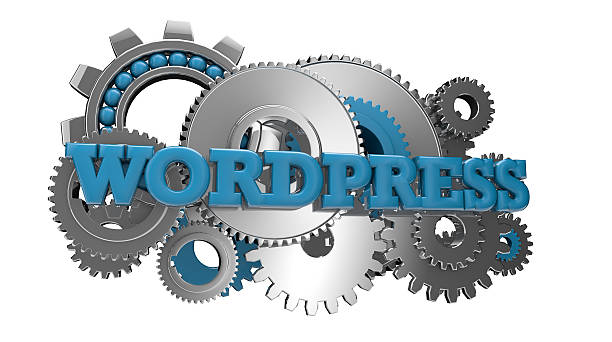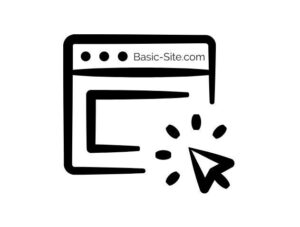
Selecting the right hosting provider for your WordPress site is one of the most critical decisions you’ll make for your online presence.
The right host ensures your website is fast, secure, and always available, while the wrong one can lead to slow loading times, security vulnerabilities, and frequent downtime.
This guide will walk you through the key factors to consider when choosing the best hosting provider for your WordPress site.
1) Understand Your Website’s Needs

Before diving into specific hosting providers, it’s crucial to understand the unique needs of your website. Ask yourself:
- Traffic Expectations: How many visitors do you expect per month? Low traffic sites may do well with shared hosting, while high-traffic sites might need VPS, dedicated, or managed WordPress hosting.
- Type of Website: Are you running a blog, an e-commerce store, or a portfolio site? E-commerce sites need more resources and security features.
- Technical Expertise: Do you have the technical skills to manage your server, or do you need a host that provides managed services?
Understanding these factors will help narrow down your hosting options to those that align with your specific needs.
2) Types of WordPress Hosting

WordPress hosting comes in various forms, each with its own advantages and disadvantages:
- Shared Hosting: This is the most affordable option, where your site shares server resources with other sites. It’s suitable for beginners or small websites with low traffic. However, it can suffer from slower speeds and limited resources as your site grows.
- VPS Hosting (Virtual Private Server): VPS offers more resources and better performance than shared hosting by partitioning a physical server into several virtual servers. It’s ideal for medium-sized websites that have outgrown shared hosting.
- Dedicated Hosting: With dedicated hosting, you get an entire physical server to yourself. This provides maximum control, performance, and security but is also the most expensive option. It’s best suited for large websites with high traffic.
- Managed WordPress Hosting: This type of hosting is optimized specifically for WordPress sites. It includes automatic updates, enhanced security, and expert WordPress support. It’s more expensive than shared hosting but worth it for the added convenience and performance.
3) Performance and Uptime

Website performance and uptime are critical factors that directly affect user experience and SEO rankings. When evaluating a hosting provider:
- Server Speed: Look for hosts that use solid-state drives (SSDs), offer content delivery networks (CDNs), and use caching to improve load times. Some providers even offer specific speed optimization features tailored to WordPress.
- Uptime Guarantee: A reliable hosting provider should offer at least a 99.9% uptime guarantee. Uptime refers to the percentage of time your website is online and accessible to visitors. Frequent downtime can harm your reputation and result in lost revenue.
- Scalability: As your website grows, you may need more resources. Choose a host that allows easy upgrades to more powerful hosting plans without significant downtime or hassle.
4) Security Features

Security is paramount for any website, especially if you’re handling sensitive data such as customer information or payment details. When selecting a hosting provider, consider:
- SSL Certificates: Secure Socket Layer (SSL) certificates encrypt the data transmitted between your website and its visitors. Many hosts offer free SSL certificates as part of their packages, which is essential for site security and SEO.
- Regular Backups: Ensure the host provides regular backups of your website. Daily backups are ideal, as they allow you to restore your site quickly in case of data loss or hacking.
- Firewall and DDoS Protection: A good host will offer a web application firewall (WAF) and protection against Distributed Denial of Service (DDoS) attacks, which can help keep your site safe from malicious traffic.
- Malware Scanning and Removal: Some hosts offer automatic malware scanning and removal as part of their security package, which is particularly important for WordPress sites that can be vulnerable to security threats.
5) Customer Support

Responsive and knowledgeable customer support is vital, especially if you’re not highly technical. Look for hosting providers that offer:
- 24/7 Support: Issues can arise at any time, so 24/7 support via chat, phone, or email is crucial.
- WordPress Expertise: Since you’re running a WordPress site, choose a host with support staff that are experts in WordPress and can help with WordPress-specific issues.
- Comprehensive Knowledge Base: A good host should provide a wealth of tutorials, guides, and resources to help you troubleshoot issues on your own.
6) Pricing and Value for Money

While it’s tempting to choose the cheapest hosting option, it’s important to consider the value you’re getting for your money. Evaluate hosting providers based on:
- Introductory vs. Renewal Prices: Many hosts offer attractive introductory prices that increase significantly upon renewal. Ensure you’re aware of the long-term costs.
- Inclusions in Plans: Consider what features are included in the hosting plan. Some providers may charge extra for things like backups, SSL certificates, or email hosting.
- Money-Back Guarantee: A money-back guarantee gives you peace of mind, allowing you to try the service and get a refund if you’re not satisfied within the specified period.
7) Reputation and Reviews

Finally, consider the reputation of the hosting provider. Look for reviews and testimonials from other WordPress users to gauge their satisfaction with the service. Check forums, social media, and independent review sites for honest feedback.
- Longevity: How long has the provider been in business? A longer track record can indicate reliability.
- Industry Recognition: Awards and recognition within the hosting industry can be a good sign of quality.
Conclusion and Reminder

Choosing the best hosting provider for your WordPress site requires careful consideration of your specific needs, the types of hosting available, performance, security, support, pricing, and the host’s reputation.
By taking the time to evaluate these factors, you can ensure that your website has a strong foundation for success. Remember, the right host will not only support your website’s current needs but also help it grow and thrive in the long term.
